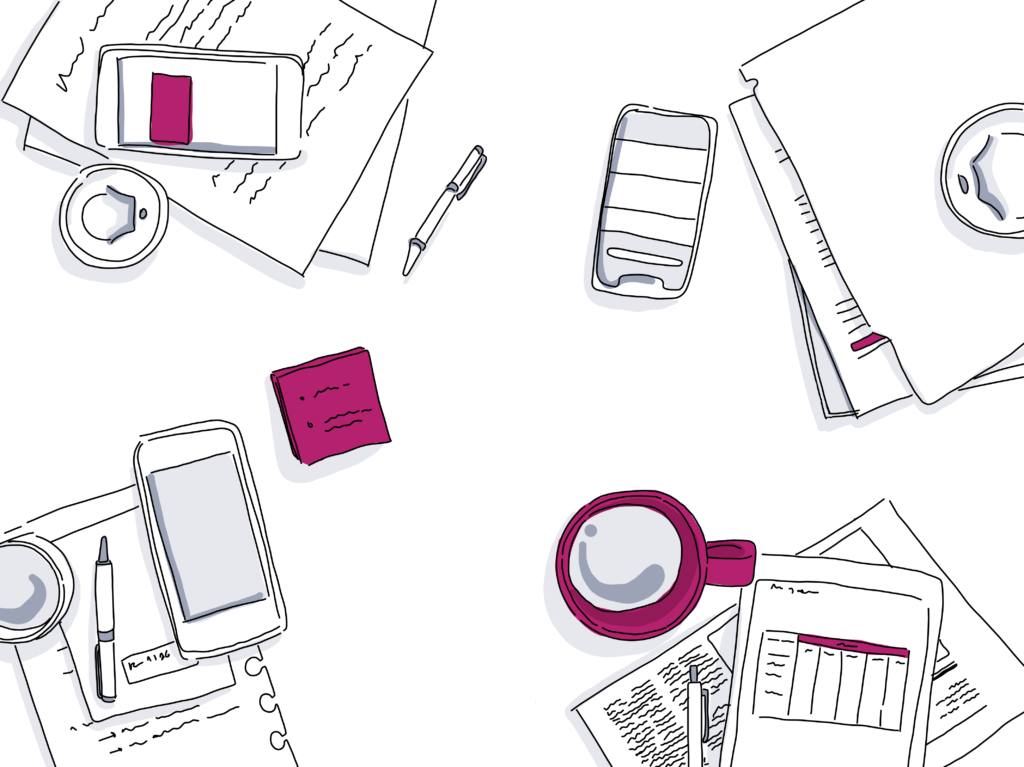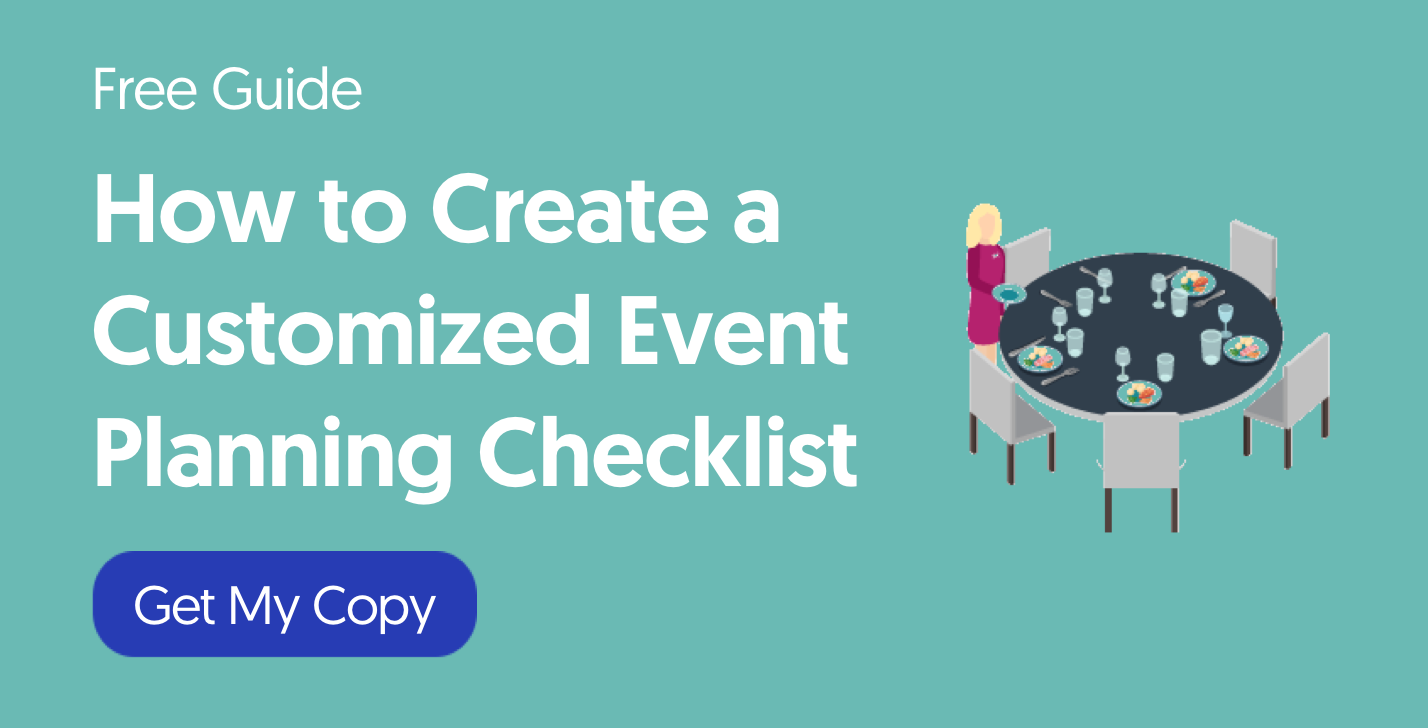
Tips Tuesday: 21 Event Planning Productivity Hacks
Experienced event planners know that the key to success is keeping their skills sharp and perfecting their process. So if you’re searching for ways to improve your craft, these productivity hacks for event planning are a good start.
Explore simple productivity secrets to save time when planning events.
Whether you work for a company or have your own business, you already know how to plan spectacular events. But if you’re looking to step up your game, you might want to give some of these great ideas a try.

1. Work with a platform that offers predictive and prescriptive KPI’s.
There are a lot of vanity KPIs that sponsors or partners want to use when measuring event success, however not all KPI’s are created equally. Predictive and prescriptive KPI’s help with event planning and design but they’re also great for anticipating roadblocks ahead of time.
2. Develop a repeatable event project notes formula.
Create one for every meeting, site visit, and phone call to keep your notes consistent and organized. It’ll save you time shuffling through various folders or multi-page files for important details. Most word processors have the ability to copy and paste formatting options across multiple documents, so this productivity hack for experienced planners is really easy to implement but can make a world of difference.
3. Outsource event production or design.
If you’re a corporate event planner, you might want to consider adding some specialists to your team. Besides, if these aren’t your specialty anyways, you’ll be handing the task over to someone who can truly do an excellent job, leaving you more time to focus on actually planning the whole thing.
4. Create a common language with your collaborators.
Sure you all agree on why the event is important and what it’s all about, but does everyone really understand? Take some time at the top of the project to develop shorthand for goals, drilling them down to 2 or 3 key word objectives. When questions come up or tasks need to be assigned, remind team members of your common language to help everyone stay on the same page. This will eliminate too much back and forth or any unfocused partners you have to keep getting back on track.
5. Compare your event checklist with other mid-level planners.
If you don’t personally know a lot of event planners at or above your level, consider trying a networking group on LinkedIn or Facebook. They’ll have suggestions or insights for you that will help your projects go a lot smoother.
6. Before you begin planning an event, nail down the Net Promoter Score.
Are past attendees or current clients going to recommend your upcoming event to their network? Your Net Promoter Score can help predict how successful those marketing avenues will be and whether or not the project will need an extra boost in other areas to really take off.
7. Use tools, such as Zapier, to automate everyday tasks.
Zapier is an app integration tool that basically helps all the event planning and communication sites you typically use talk to one another. It will help keep all your data up to date without messing up your workflow with excess manual tasks.
8. Develop your on-the-go note taking strategy.
It’s a scientific fact that your best ideas arrive when you stop thinking so hard about it. Which basically means that all the answers you try to come up with during the work day often don’t occur to you until later when you’re in traffic, grabbing coffee with a friend, or winding down in the evening. Keep these inspirations in one place (like in Evernote, in a dedicated email inbox, or in a plain old journal) so you don’t lose them.
9. Streamline key event stakeholder involvement through a central communication hub.
It’s true what they say – event planning software (like the ones in this list) can make you a productive event planning rockstar.
10. Make your event plan Agile.
If you aren’t hip to agile project management yet, be sure to check out this helpful beginner’s guide. Basically this methodology allows collaborators to solve problems as they see fit as long as it gets done in the allotted time frame, which will relieve you of any extra follow up or monitoring activities.
11. Create foundational networking and outreach habits.
This applies to all aspects of your career, including prospective event planning clients, key venue managers, and vendors you’d like to develop relationships with. By making networking a habit now, you’ll have a great pool of resources at your disposal in the future. Try having coffee with one major venue manager in your city each month. Or connect with two highly targeted event planning prospects over LinkedIn every week.
12. Snooze your Gmail account on event days.
Gmail Snooze is better than a vacation responder because it lets you select individual messages and choose when you’d like them to pop back up in your inbox, whether that’s later in the day, tomorrow, over the weekend, or next week.
13. Already do weekly check-ins? Add weekly check-outs to your process.
How you end your week is just as important as how you begin it. Send a quick email to your top event collaborators or stakeholders every Friday morning. Include one or two easy to answer questions. Make sure to emphasize your genuine interest in what they’re thinking or experiencing so far in this process. It’s a nice way to get (and keep) everyone on task, emotionally invested, and ready to start fresh on Monday.
14. Systemize the creation of experience focused events.
Rather than start from scratch with each new demographic, create a template by event type, industry, or just for general use (which works best for a string of events meant for the same target audience). Include all the information and research you normally would for this kind of group and save it as a quick reference when you start planning your next event. It’ll help you make better, big picture decisions that emphasize the attendee experience right from the start.

15. When reaching out to sponsors, take time to emphasize how their involvement will be so much more than logo placement.
This will save you so much time going back and forth with dozens of sponsors. And you’ll be able to seal the deal a lot faster than if you sent out a bunch of general messages. As you can see from these great event sponsor proposal examples, you’ll actually send out less messages but receive far more positive responses with this tactic.
16. Templatize your client and venue outreach emails.
Leave space to personalize names and your specific reason for contacting that person in particular. Use responsive email programs like GetResponse, Sendy, and MailChimp for a more polished design and performance analytics.
17. Templatize your contracts too.
Have your basic requirements and clauses outlined for each different type of client or service option offered. Store them all in the same folder for easy referencing. Use a contract software to make things really easy.
18. Standardize client in-take forms on your website.
Ask for every piece of information you’d normally gather during an exploratory call. This will save you the hassle of yet another meeting. Plus you can respond with a proposal, a contract, and some well thought out next steps that will get the ball rolling even faster.
19. Turn to crowdsourcing platforms for repetitive tasks.
Building potential client lists and narrowing down specific types of venues across multiple cities can both be completed by an assistant on one of these great crowdsourcing platforms.
20. Eliminate all distractions during allocated work time.
Dedicate a drawer or a decorated box to your cell phone and put it in there when you have to focus. You can also install distraction blocking software on your computer. And if the situation is really dire, grab an accountability buddy to check in with at the top of every session. Tell them what you plan to accomplish during the allotted time frame. Then check in with them at the end. Analyze why you did or did not accomplish your goal and they can do the same.
21. Use the Pareto Principle to guide your decision making.
20% of your work leads to 80% of your results. Use this way of thinking to assess how you reach out to sponsors, which groups of target attendees you market to first, and which event planning activities are taking up far too much real estate on your calendar despite how ineffective they’ve been in the past.
You’re ready to level up your event planning productivity!
Have a look at these B2B event marketing trends, the latest event industry news, and legal issues in event planning you might not already know about.

